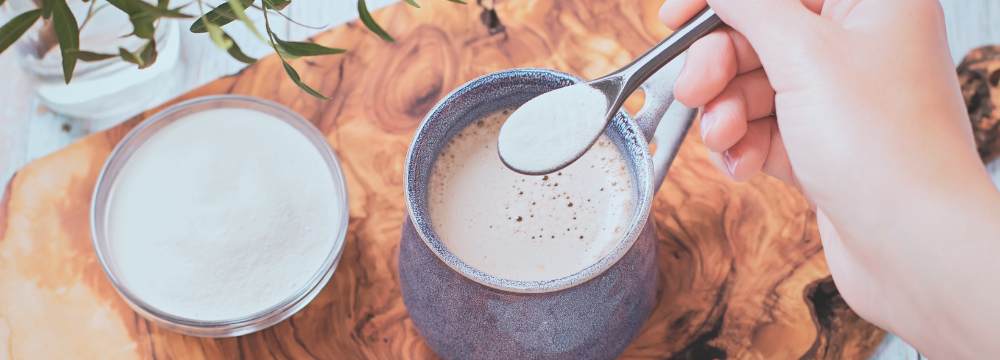Do Collagen Drinks Improve Your Skin?

With a renewed focus on skin, health, and aesthetic treatments, many of our patients wonder if collagen drinks, which have become more prevalent in recent years, serve any benefits or, as some claim, actually do promote a natural increase in collagen. It’s an excellent question and one that has a straightforward answer. However, before we get to that, it’s essential to understand more about collagen.
Collagen is naturally produced by the body, giving the skin support and bounce. Patients naturally gifted with good collagen production typically maintain a fuller, more youthful look later in life. Those whose collagen breaks down at a younger age tend to require aesthetic treatments sooner. We all begin to lose collagen as we age; of that, there is no doubt. However, stimulating new collagen growth is the goal of any aesthetic treatment.
The Claim
The theory behind collagen drinks is that fragmented collagen consumed via these drinks may spur the body, believing it is losing collagen, to produce more. But the reality is far less cut and dried, and we need reliable clinical data showing a benefit.
However, you may have spoken to a friend or family member that drinks these products regularly and swears by them. The most likely reason for any benefit derived from these drinks is simple – hydration. Most Americans are chronically dehydrated, and even a slight deficit in hydration can cause significant physical and psychological concerns. Our skin requires a good deal of water, and without it can become dry, itchy, and develop more fine lines. Properly hydrated skin is usually brighter and plumper, giving the semblance of improved collagen production. Again, the most likely scenario is not that these drinks have produced more collagen, but rather that they have hydrated the person’s body.
Is There Any Risk of Drinking These Drinks?
Ultimately, it seems that there is minimal risk in drinking collagen products. Of course, this comes with caveats. First, be sure that the other ingredients in the collagen drink are not counterproductive to your aesthetic or health goals. Products that contain significant amounts of sugar or allergens, like whey proteins, can be ineffective in your aesthetic regimen. The only other caution is simply price. We don’t want you to waste money on something that is, possibly, no better than any other hydrating drink.
What About Collagen In Protein Powder?
If you are deficient in your protein intake, your musculature may suffer. This is especially true if you are on a weight loss regimen or looking to tone your body through strength training exercises. Some protein powders at various nutrition stores, and even Costco, contain collagen peptides. If you are buying protein powder anyway, opting for one that includes these compounds probably doesn’t hurt.
The Alternatives
Ultimately, we know that a few aesthetic treatments improve collagen production, and several are performed here at Revive Skincare Clinic. Typically, our treatments that damage (in a good way) the skin push the body to produce new collagen as a repair mechanism. Treatments like a fractional laser, IPL, and hyaluronic acid filler, have all shown collagen-boosting properties, offering longer-term positive results. Of course, these treatments are not inexpensive, but they all come with additional benefits, including improving skin tone, minimizing blemishes, and even treating complex conditions like acne.
When it comes to collagen, we always recommend tried and true products and procedures for our patients. We encourage you to schedule a consult and procedure with Anna Politi, our aesthetician, about several available skincare options, and Dr. Boger about injectables and laser therapies.